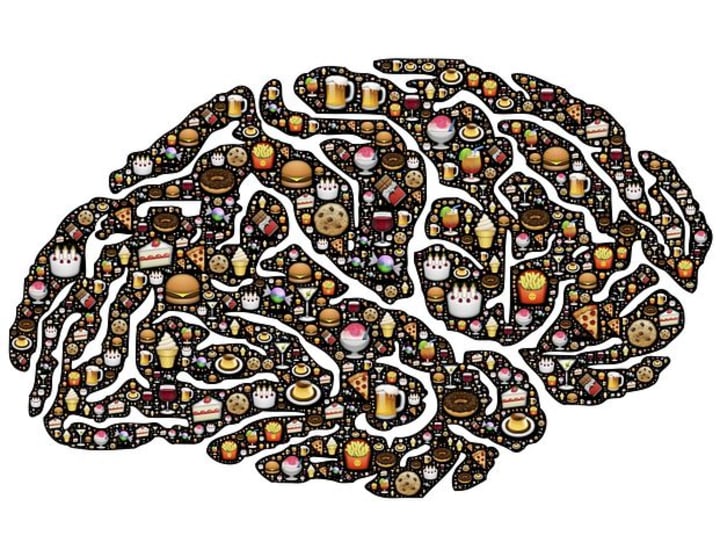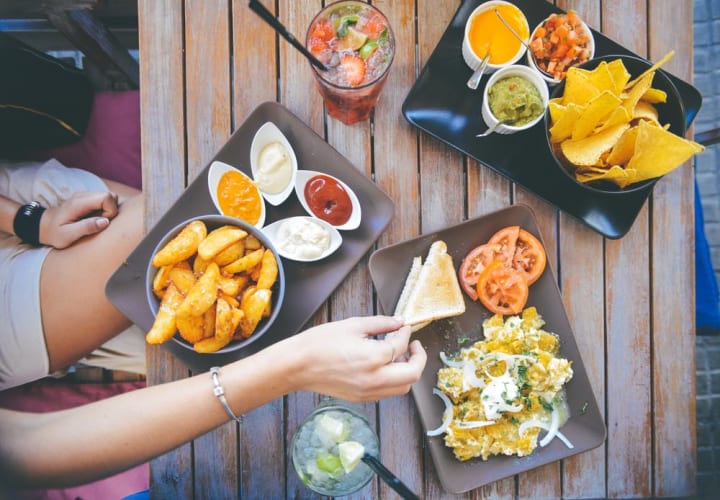Understanding Food Addiction
The psychological dependency on food

Psychological vs. Physiological
There is a huge difference between eating to satisfy the bodies need for fuel and a food addiction. The most obvious difference is that the bodies need for fuel is a physiological need for nutrition; while food addiction is a psychological disease where a person forms a dependency on high-fat foods, sugary foods, salty foods, or loses the ability to stop eating more food then needed in general.
Addictive chemicals, such as alcohol, opiates and other illegal substances, trigger reward or pleasure nerve centers in the brain. These reward centers can also be triggered when you consume a large amount food, especially of foods you consider highly palatable. The releasing of chemicals such as dopamine, makes you feel good and the pleasure becomes associated with the consumption and increased dopamine is sent into to the brain.

Food addiction that psychological dependency on food that must be treated
Unhealthy Relationships with Food
It is important to recognize the difference with an occasional over indulgence and a true food addiction in order to tackle this ever growing disease. When a person connects emotion to food and begins to eat based on the psychological demand for food, a unhealthy relationship with food is developed. A psychological addiction to food can be strong enough to override the physiological signals of satiation or the body actually being full. When there is an addiction your brain is consistently looking for that stimulation and a cycle is created of cravings that you are not able to fulfill; due to the dependency on “feeling good” vs. feeling full.
According to the National Association of Anorexia Nervosa and Associated Disorders, around 24 million Americans suffer from an eating disease such as anorexia (not eating due to the perception that you are overweight and food is what causes this state), binge eating (eating out of control), bulimia (eating and then vomiting the food back up) or purging (eating out of control, followed by throwing up).

Look for Symptoms
It is important when assessing an individual to look at the various signs or symptoms of eating disorders. Because of the override of the body feeling full individuals may not be able to stop eating and often eating to the point of feeling or making themselves ill. These individuals may suffer from constant worry about food and may even wake up in the middle of the night to have a snack and many refuse to eat healthy foods because their choice of food is not based on nutrition but simply on taste and the feeling of it.
Another sign of food addiction may be the use of food as comfort when feeling upset, disappointed, sad, angry or alone or using it as a way of coping with depression or low levels of self-esteem. Many times these individuals avoid social events due to their tendency to overeat and not wanting anyone to notice their overeating.
Finding Help
There is a lot of work needed to be done in order for science to more clearly understand and determine treatments that are specific for addressing food addiction. There are doctors that argue that recovering from food addiction is more complicated than recovering from any other kind of addictions. The reason is that heroin users, for example, can ultimately choose to stay away from using, however a person who is addicted to food still has to eat everyday, therefore they are faced with a daily battle that will be triggered again and again.
Finding a doctor, dietitian, psychologist, or addiction center that specializes on food addiction may provide the tools necessary to break the destructive cycle of compulsive overeating. Currently, there are a number of programs that have been developed specifically to help those suffering from addiction to food. Food Addicts in Recovery Anonymous, for example, is a program designed around the 12-step path that has helped so many individuals recover from sex, alcohol, drug and gambling addiction.
As with any other type of addiction, the first step is for us to recognize that we have a problem that we are unable to solve on our own and develop the courage to ask for help.
About the Creator
Johanna Godinez, Life and Style Coaches
Business Manager by trade and Lifestyle and Wellness educator, coach and speaker by passion. "It is not what you create for yourself, but how you affected the life of others that leaves behind a true legacy".






Comments
There are no comments for this story
Be the first to respond and start the conversation.